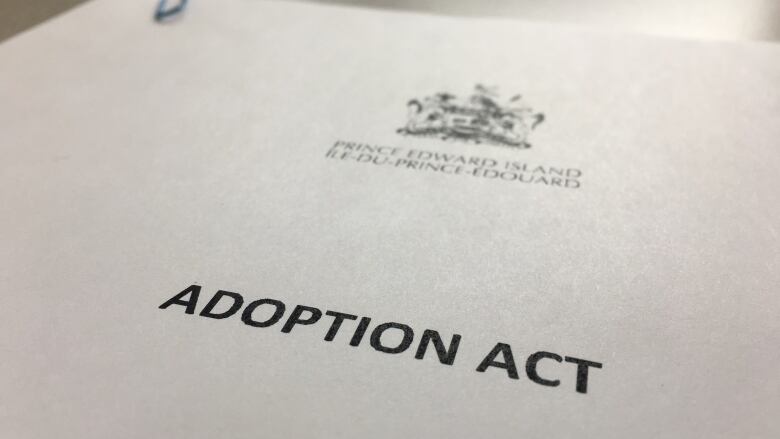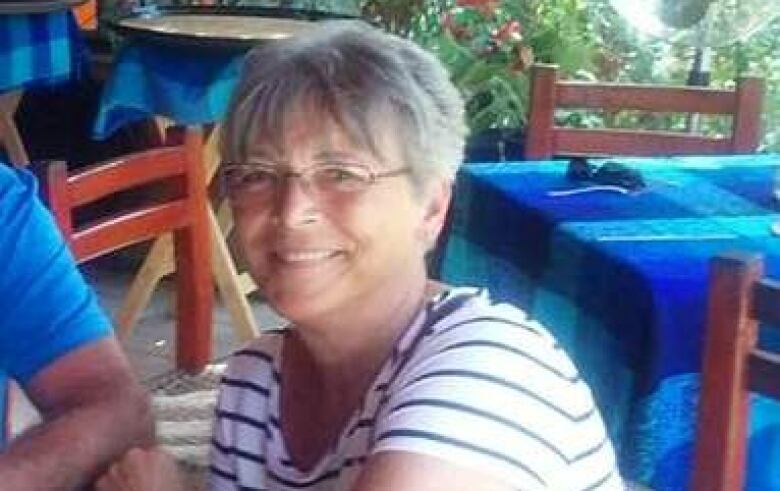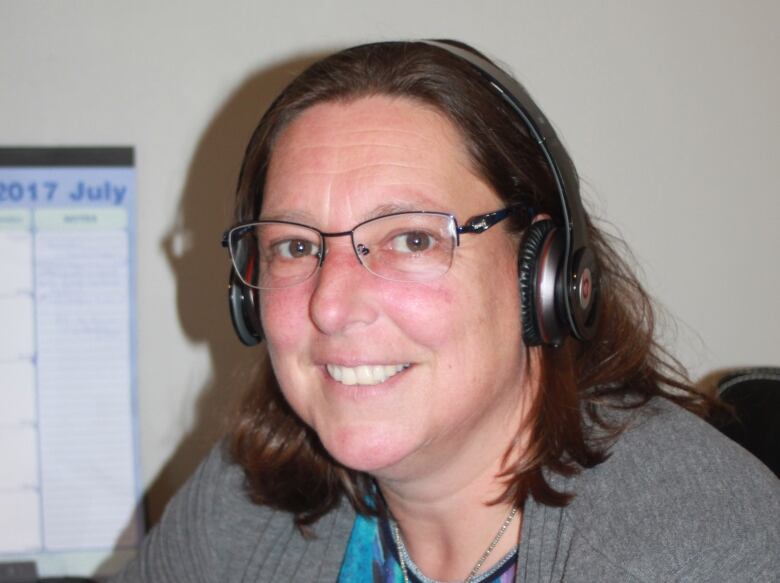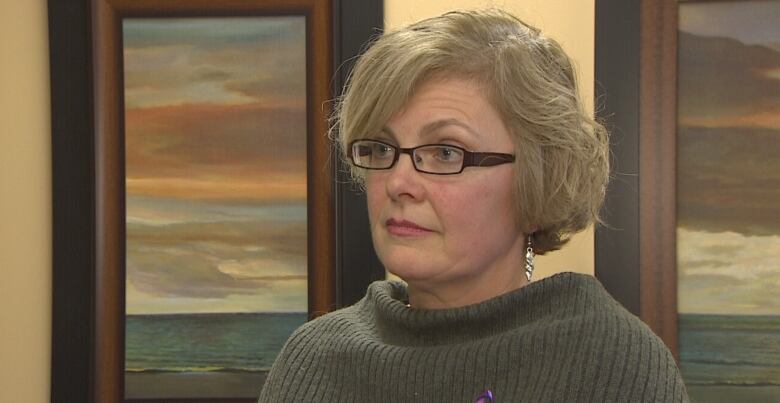Sealed adoption records gave us 'a lifetime of grief,' says mother
P.E.I. begins consultations on opening up adoption records

Public consultations on whether P.E.I. should move to open up its adoption records officially get underway next week.
But the review committee struck to conduct the consultations has already begun meeting privately with some groups, and the P.E.I. Legislature has been provided with a sheaf of testimonials from children who were adopted and parents who placed their children for adoption, calling for the records to be opened up.
In one of those testimonials, Sandra Comeau wrote about the decades she waited hoping to hear from the son she placed for adoption in 1968. She said at the time she was told it would be illegal for her to search for him, but that he would be able to find her, if he wanted to, once he turned 18.
"Sealed records gave us the gift of a lifetime of grief," she wrote. "Years upon years of searching and wondering about a part of you that is missing, profound grief that reappears when that piece of you is found and you suddenly realize all you have lost, all the time you have missed."
Comeau said her son, who now lives in New Jersey, searched for her for 16 years before the two connected when he was 47 years old.
Consent needed to identify parent, child
Under P.E.I. legislation the province's adoption records are considered sealed. Identities of the parties involved can only be revealed after those people have given their consent.
Most other provinces have moved to open up their adoption records, providing identifying information to parents and adult children unless they've specifically applied to have their information remain private.

P.E.I. conducts two types of searches through its post-adoption services office. The office will conduct what it calls an "active search" on behalf of an adult child who was adopted to find their birth parent. If the province is able to find the parent and that person agrees, then the province says a reunion will be arranged.
I just want to know that he had a good life. Charlotte MacAulay
The province won't conduct an active search on behalf of a birth parent looking for the child they placed for adoption. But it will place them on what it calls its "reciprocal search register," a database with the names of children, parents, siblings and others who are searching for one another. If the reciprocal search register indicates a match, then the province says "the possibility of a reunion would be explored."
Without consent, the province will only provide non-identifying information to people involved in an adoption, including information on the adoptee's birth history and early development, a physical description of the birth parents, and health information.

Charlotte MacAulayplaceda son for adoption 35 years ago. She's been searching for him for years.
She's also part of a Facebook group that tries to connect birth parents and adoptedchildren who are searching for one another.
She said in some cases it's taken five years or more for the province to respond to applications for basic, non-identifying information about an adoption. She's urging the province to open up its records.
"I just want to know that he had a good life," she said. "And if he doesn't want to have a relationship with me, then you know, I'll have to accept that."
P.E.I.'s adoption co-ordinator, June MacKinnon, said some responses to applications for adoption information had been taking at least a year as her office was dealing with "a high volume" of requests. But she said the time frame now for those responses is "much, much shorter."
Why some may want records sealed
She said the province has a good track record reuniting children with their birth parents.
"I can't provide exact statistics but I know that we tend to be quite successful finding birth parents. There are occasional circumstances where we are unable to locate the person, and there are some circumstances where the person would not agree to have contact with the adult adoptee. But I would think on the whole we have outcomes where there are reunions."

As to why some might argue to keep P.E.I.'s adoption records sealed, MacKinnon said there could be some birth parents who "have moved on with their lives, and haven't shared that [adoption] with current family members . For that population, it can be a very challenging thing to have revealed if they're not wanting that information to be revealed."
MacKinnon said every Canadian jurisdiction with open adoption records does allow people to apply to keep their information private.
Besides public consultations, the province is inviting written submissions on the issue of open adoption records, as well as inviting Islanders to apply for a private meeting with the advisory committee examining the issue.
That committee is supposed to provide its final report to government in June.
- MORE P.E.I. NEWS | Male survivors of sexual abuse find support with Charlottetown group
- MORE P.E.I. NEWS | Charlottetown asking residents for feedback on energy plan












_(720p).jpg)


 OFFICIAL HD MUSIC VIDEO.jpg)
.jpg)



























































































